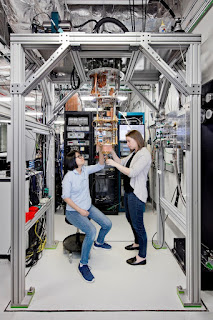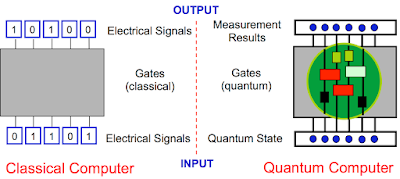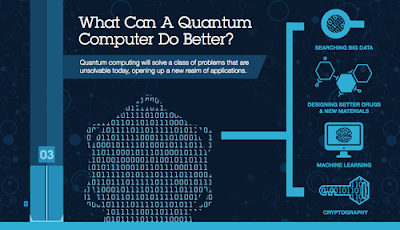Twitter Feed
Enomaly: Startup of the Week
Congratulations to Enomaly and Reuven Cohen for being named Startup of the Week byInformationWeek !!! Reuven and I collaborate quite a bit and his blog, Elastic Vapor, is a staple for anyone interested in…
Cloud Computing at DoD, DISA, DIA, CENTCOM and NCOIC
At CloudCamp last week, Military Information Technology distributed free copies of it’s November issue to all attendees. The issue contains a very informative article by Cheryl Gerber titled “Computing in…
Last Night’s Camp Out !!
Check out Tech BISNOW for more on CloudCamp Federal! Follow me at https://Twitter.com/Kevin_Jackson
CloudCamp Federal was AWESOME !!
Just got home from CloudCamp Federal. What an event!! The over 100 attendees definitely made the statement that the Fed is interested in cloud computing. As expected, cloud security was…
DISA taps CollabNet to manage DoD cloud software development
This week, the Defense information Systems Agency (DISA) announced that they will be using Collabnet tools to manage application development for RACE. The Computerworld article said that DISA will use…
Today is CloudCamp Federal !!
Today we kick of off the first CloudCamp Federal. Reuven Cohen, Bob Lozano, Brand Niemann and over 150 other cloud computing enthusiast are expected to attend. We also plan to…
CloudCamp “Sold Out” !! More Tickets Added
We are happy to announce that CloudCamp Federal (aka DC), taking place tomorrow at Apptis headquarters in Chantilly, VA (directions), is sold out. But don’t fret, we’ve added 25 more…
Only 9 tickets left for CloudCamp Federal !!
Only 9 tickets left from the original allotment of 150 for CloudCamp Federal this week. We’re working to free up some more, but don’t leave it to chance. Go to…
Valiant Angel – A Perfect PED Application for Cloud Computing
A few weeks ago in an article title “Why the Cloud? Processing, Exploitation and Dissemination“, I described two instances where the newspaper industry used cloud computing in order to process,…
- The release of a new API (Application Program Interface) for the IBM Quantum Experience that enables developers and programmers to begin building interfaces between its existing five quantum bit (qubit) cloud-based quantum computer and classical computers, without needing a deep background in quantum physics.
- The release of an upgraded simulator on the IBM Quantum Experience that can model circuits with up to 20 qubits. In the first half of 2017, IBM plans to release a full SDK (Software Development Kit) on the IBM Quantum Experience for users to build simple quantum applications and software programs.
The IBM Quantum Experience enables anyone to connect to IBM’s quantum processor via the IBM Cloud, to run algorithms and experiments, work with the individual quantum bits, and explore tutorials and simulations around what might be possible with quantum computing. Since its launch less than a year ago, about 40,000 users have run over 275,000 experiments on the IBM Quantum Experience. It has become an enablement tool for scientists in over 100 countries and, to date, 15 third-party research papers have been posted to arXiv with five published in leading journals based on experiments run on the Quantum Experience.
 The broad availability of quantum computing capability could prove to be a significant blow to current data encryption practices. In 2015 the US National Security Agency actually advised US agencies and businesses to prepare for a time when the cryptography protecting virtually all e-mail, medical and financial records, and online transactions would be rendered obsolete by quantum computing. The US National Institute for Standards and Technology (NIST) is also running a competition to spur work on post-quantum algorithms.
The broad availability of quantum computing capability could prove to be a significant blow to current data encryption practices. In 2015 the US National Security Agency actually advised US agencies and businesses to prepare for a time when the cryptography protecting virtually all e-mail, medical and financial records, and online transactions would be rendered obsolete by quantum computing. The US National Institute for Standards and Technology (NIST) is also running a competition to spur work on post-quantum algorithms. - Drug and Materials Discovery: Untangling the complexity of molecular and chemical interactions leading to the discovery of new medicines and materials;
- Supply Chain & Logistics: Finding the optimal path across global systems of systems for ultra-efficient logistics and supply chains, such as optimizing fleet operations for deliveries during the holiday season;
- Financial Services: Finding new ways to model financial data and isolating key global risk factors to make better investments;
- Artificial Intelligence: Making facets of artificial intelligence such as machine learning much more powerful when data sets can be too big such as searching images or video; or
- Cloud Security: Making cloud computing more secure by using the laws of quantum physics to enhance private data safety.
This content is being syndicated through multiple channels. The opinions expressed are solely those of the author and do not represent the views of GovCloud Network, GovCloud Network Partners or any other corporation or organization.
( Thank you. If you enjoyed this article, get free updates by email or RSS – © Copyright Kevin L. Jackson 2017)
Cloud Computing
- CPUcoin Expands CPU/GPU Power Sharing with Cudo Ventures Enterprise Network Partnership
- CPUcoin Expands CPU/GPU Power Sharing with Cudo Ventures Enterprise Network Partnership
- Route1 Announces Q2 2019 Financial Results
- CPUcoin Expands CPU/GPU Power Sharing with Cudo Ventures Enterprise Network Partnership
- ChannelAdvisor to Present at the D.A. Davidson 18th Annual Technology Conference
Cybersecurity
- Route1 Announces Q2 2019 Financial Results
- FIRST US BANCSHARES, INC. DECLARES CASH DIVIDEND
- Business Continuity Management Planning Solution Market is Expected to Grow ~ US$ 1.6 Bn by the end of 2029 - PMR
- Atos delivers Quantum-Learning-as-a-Service to Xofia to enable artificial intelligence solutions
- New Ares IoT Botnet discovered on Android OS based Set-Top Boxes




